by Jenny Rose | May 13, 2023 | Authenticity, Emotional Intelligence
I have written about dance here before. In the structure I use, the 5 Rhythms Wave by Gabrielle Roth, chaos is part of the wave. The music for chaos is fast but grounded. Think Pink Floyd’s Meddle.
As I lingered on the threshold between waking and sleep this morning, thinking about loss, the subject of my last post; thinking about my distressing inability to publish my usual essay on Substack last week, and thinking about the ways in which I’m reshaping my beliefs about my family and therefore myself, I recognized the chaos part of the dance.

Photo by Leon Liu on Unsplash
To dance in chaos involves letting everything go except the beat. Chaos is about strength, not beauty. It’s about grounding and staying grounded even as the music flings us through space.
Chaos is the part where you dance till you drool.
The edge of chaos is fertile, regenerative, thick with possibility. It’s also powerfully disorganized and unpredictable. It’s exhausting, overwhelming. Too much is happening too fast. When dancing chaos, we give ourselves entirely to the music and follow it through the tumult however we can. As Margaret Shepherd said, “Sometimes your only available transportation is a leap of faith.” Add music to that idea and you have the chaos part of the dance. The car has broken down. The planes are grounded. The train has derailed. The illusion we’re in control has shattered. Our routines and schedules fall apart around us. Our internal and external worlds begin to reshape in ways we can’t understand.
I’ve been troubled in the last couple of weeks by the violence of my rebellion against doing anything except work and play in the garden. I don’t want to write. I don’t want to think or reason. I don’t care about the damn housework. Beltane, May 1st, came and went without my usual ritual and practices. I don’t want to be brave, strong, organized, compassionate, tolerant, empathetic, or responsible.
I can’t remember a time in my life when I’ve shut down like this. I’m unable to guilt or lash myself into being “productive.” I feel ashamed and scared. I don’t recognize myself.
It occurs to me this is my Beltane ritual this year. After all, Beltane is about fertility. Physical fertility, the cyclical fertility of the growing season, creative fertility. My ritual this year is being in the garden. There, with my knees in the dirt, the smell and feel of the soil, the texture of new weeds and old leaves and matted grass (we didn’t have a mower last year), I am peaceful. I know where I am. I am, literally, grounded. I don’t have my phone. Nobody needs anything from me. I bend, kneel, stoop, dig, rake and shovel compost mindlessly. I dream vaguely about new garden beds, rewilding with native shrubs and trees. Black flies come for their drop of blood. The sun shines down on me.
Right now I need to be in the garden. I don’t understand it entirely, but perhaps there’s no need to. What I do know is something in me refuses to engage with anything else. As the lilies and iris emerge, as the tulips bloom and the daffodils fade, as the lilacs bud and the magnolia blossoms fall and cover the ground, I mulch and prune and feel seismic forces beyond my control reshape me internally.

Photo by Kelly Sikkema on Unsplash
So much of what I’ve learned and believed about my family and my place in it has crumbled into dust. Old family myths have exploded with fragments of evidence from Mom’s life, unearthed in the process of selling her estate. I didn’t entirely believe in some of those myths, but they were stable. They provided a family background I was familiar with. I built an identity from the identities family members who came before me created. If I am not the despised one, the broken one, the one who doesn’t belong, the cuckoo in the nest, who am I? Has all that been yet another family myth? Has any of it ever been about who I really am or my personal value, or have I been nothing but a faceless, nameless piece in a dysfunctional family pattern?
I long for freedom. Is this the beginning of freedom?
My recent inability to force myself to take care of business, to be responsible, consistent, and productive, is terrifying. I’ve always pushed myself through any resistance or fatigue. I’ve always known I must justify my existence with constant production, pleasing, and caregiving.
Am I free of that now? If I don’t have to justify my existence because that belief is a lie based on family mythology that’s at least part lies, is that freedom? Am I brave enough to take my freedom, walk away from all the burdens (too heavy for me, but I’ve carried them anyway), and simply choose what makes me happy? I have stood at this crossroad before.
Two weeks ago I wrote about loss. Now I’m watching glimmers of new beginnings, nebulous glints of what might come into the disturbed ground of my being. I pick up trash and find rich soil beneath it. I dig up dandelions and burdocks and discover little patches of old garden. The sun touches me without asking for anything in return. I rake away last year’s debris and mix it with compost to build new garden beds. This morning, the crab apple is in bloom. The tight buds on the white lilac by the porch door gather perfume.
Meanwhile, back in Colorado, strangers live in my mother’s house. Hospice tells me Mom can no longer ambulate independently, even with her walker. A call in the middle of last night reported yet another fall, as she doesn’t realize (or won’t admit) her own weakness. Appraisal revealed my wealthy and powerful grandmother’s gold, pearls, and gemstones were mostly costume, not real. A ladylike façade. A denial of her impoverished roots. A glimpse of shame and fear that rival my own, though I never knew they were there.
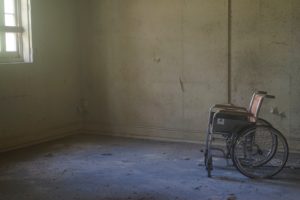
Photo by Doug Maloney on Unsplash
It’s Mother’s Day weekend. A friend asked me yesterday how I felt about that, and I had no words.
What is real? What can I bear? The dirt on my knees, under my fingernails. The spectacularly itchy, burning welts of black fly bites. The egg shells, banana peels, and soggy segments of lemon in the compost pile. The lovely cupped double tulips I planted last fall, white, pink and purple. The thumb-sized bumble bee tumbling ecstatically among the pink blossoms of the crabapple. My own breath, heartbeat, sweat. The sun on my skin.
Gardens are made and remade. They die and are reborn. They go wild and survive until rediscovered. They adjust, adapt, take advantage of the edge of chaos according to their own wisdom and purpose.
For now, I’m in the garden, dancing with chaos, nurturing new life, hanging on.
Questions:
- What is your experience of Mother’s Day?
- In the times during which you struggle to manage your life, are you fearful or do you allow yourself to follow your needs?
- Do you find chaos joyful and exhilarating or frightening?
- What opportunities have you had to reframe your family?
Leave a comment below!
To read my fiction, serially published free every week, go here: 
by Jenny Rose | Apr 8, 2023 | A Flourishing Woman, The Journey
Delayed closure is a wound treatment strategy in which complex wounds with extensive soft tissue damage and high levels of possible contaminants are treated with initial control of bleeding, cleaning, and debridement, and then left open for a period of time during which the possibility of infection is treated proactively. At the time of delayed wound closure, further debridement of scar tissue or dead tissue takes place.
As I count down the days and prepare for my second trip out to Colorado this year to manage my mother’s recent admission to memory and hospice care, the phrase ‘delayed closure’ reverberates through my mind.

Photo by Ryan Moreno on Unsplash
Delayed closure.
I have recognized for some weeks the significance of this second return to the place I called home for more than 20 years and my frail, confused, aging mother. At least, I have begun to recognize the significance. Every day brings added clarity. Awe is not too strong a word for what I feel.
When we flee people, places, or situations (and my flight from Colorado to Maine eight years ago was all three), it’s not an elegant, dignified process. It’s a frantic life-or-death flailing and thrashing, a single-minded determination to survive, whatever it takes.
The process leaves wreckage behind, a lot of unfinished business, a lot of rending and tearing, misunderstanding and hurt. It leaves, in other words, a complex psychic wound, not a clean laceration.
When I found myself in Maine, I thought I would not survive the trauma. I had torn myself up by the roots and gone to ground in a strange place I’d never been before. I felt like skin and hair wrapped around a suppurating wound of such longstanding duration and composed of so many different kinds of damage it didn’t seem possible it would ever heal. I didn’t think of healing. I didn’t hope for healing. I was a feral creature in survival mode.
I had no idea I had in fact saved my own life and taken the first steps to transformation, and I wouldn’t have cared if I’d known.
All I was doing was surviving.
In medical care, part of the strategy of delayed wound closure is giving the body’s natural defenses a chance to overcome infectious bacteria rather than sealing them in.
What were my natural defenses?

Photo by Aaron Burden on Unsplash
Water. My home in Colorado had been enduring a years-long drought. The wind blew all the time. Gaunt, dusty cattle stood sunken-eyed on plots of hard-baked ground. The wind blew relentlessly, scouring the land with flying sand, dust, and debris. We prayed for rain as we hauled grey water to our gardens. The city imposed restrictions on outside watering, car washing, any outside fires. Trees died. Fires consumed the land. It was apocalyptic, a hellscape with no relief in sight. Our water bills went up and up for simple household use. The rain didn’t come, year after year.
Maine was a revelation. Water. Big water, like I’d never seen before. The Kennebec River. Puddles everywhere, each with a duck. The people here call an enormous lake (to my eyes) a pond. Huge trees. Hip-high ferns. Moss.
Moss!
Rain. It rained. It actually rained. Measurable rain falling for hours, sweet, cool, life-giving. Mist. Fog. To breathe was to absorb water like a desiccated sponge. My cracked skin healed, drinking in the moisture. I lived in a house with a hand-dug well. No water bill. Free water! I trained myself to flush the toilet every time! My hair curled, growing out rather than down.
I lived in the country in Maine. No one knew me. No one knew I existed or any member of my family. For the first time in my life I escaped everyone’s expectations. No one demanded anything from me. No one watched me with critical eyes. No one told stories about me. I had no reputation. I was free, untethered from everyone and everything. I could think my thoughts and feel my feelings in safety and privacy. I could read, or work, or sleep, or take a walk, or garden without interruption or someone telling me I was failing. No one demanded anything from me. I had no emotional labor to do. I rested in the healing solitude of nature, laying my hands on trees, sitting on rocks watching little spring streams trickle, sitting in the sun listening to the birds, lying in bed listening to the owls, coyotes, and spring peepers in the pond.
Writing. In 2016, a year after I arrived, I began this blog. I had no expectations. My sole intent was to write my truths in my own uncensored voice without trying to please anyone, in spite of my fear. I had done some writing in Colorado, but always with a sense of guilt and shame, always with the fear of what others would think. I knew everything I wanted to write would be looked upon as unforgiveable betrayal or wildly shameful.

Photo by Angelina Litvin on Unsplash
In Maine, so far away in a new life, I discovered my courage and started, week by week, recording my journey from a broken, cringing creature, filled with self-loathing, to a strong, confident woman. At the same time, I pulled together my scrawled notes and the stories I’d written in the dim, hidden edges of my life and finished a book. Then I started another one. Then I finished the second book and started a third one.
These were my natural defenses: water, nature, and writing. Slowly they overcame the infection in my ravaged soul.
Yet the wound did not close. It stopped stinking and bleeding. Scar tissue formed. But I had lost too much to pull the edges together and make a neat closure. I had saved my life. I had survived and gone on to thrive. But I knew I was not done.
I know an old story about amends; it says only the hand that dealt the wound can heal it. Sometimes we must flee in order to live to fight another day. I fled, and I was right to do so, but flight leaves no time for closure. For closure sometimes we must go back.
Delayed closure.
The first time, in January, I was afraid to return. Afraid of judgement. Afraid of old pain. Afraid of what others would think, or say. I was afraid to have my memories stirred up. I was afraid my wound would tear open again, and this time I would not survive.
What happened instead was acceptance and love in the arms of old friends. My love for them was met by their love for me. The place, dear and familiar, welcomed me, though I no longer call it home. I found changes, of course, but not painful changes. Natural changes. I realized my fear had kept me from the closure I need, and my fear, once faced, amounted to nothing. In reclaiming my power, I was able to gain perspective. I’m just a part of that little town in the way it’s a part of me. I’m not the most important part of it and never was. It’s not the most important part of me and never was.
Having reclaimed my power, I felt and expressed my honest love and affection for the place and the people without needing anything in return, although I received much in return with gratitude and, I hope, grace. I examined the wound again, debriding scar tissue, cutting away necrosis, until my soul was healthy and vital once more. Some lines. A few silver scars. But free of infection, free of pain.
Still, when I came home to Maine again, I knew I was still not finished. Closure was not complete. I knew one day I would return once more to the place I had left.
In less than a week I’ll be there again, this time for a longer period. We must prepare for and hold a living estate sale: clean, sort, sell, discard, donate, and perhaps store a house full of, not my mother’s life, but her stuff. The things from which she constructed her identity. We must see to repairs and the business of welcoming renters in.
We will also visit my mother in memory care. If she’s well enough, we’ll take her out for a meal or a little gentle shopping. Perhaps we can sit in the sun with her. Or, perhaps she’ll be angry and bitter, refuse to sit in her wheelchair, demand to go buy a car, or some other wildly inappropriate and impossible thing.
I will see her again, though, speak to her, tell her I love her. I’ll check to be sure she has everything she needs. I’ll speak to the staff, to her hospice team. I’ll buy some books for her from the Friends of the Library bookstore she herself created and helped run for years. If she can’t go out, we’ll bring food in, perhaps a flower in a vase, and sit in the dining room where other residents can see her with her family, give her the dignity of being loved and cared for rather than forgotten and discarded.
It will be hard, or it will be easy, or it will be both. Dementia is like that. However it is, though, I won’t take anything to heart. Her power to hurt me has unraveled, along with her memory and cognition. She’s physically safe at last. Her physical and emotional wellbeing are no longer my responsibility. They never were, of course, but I didn’t believe that until recently.

Photo by Jeremy Bishop on Unsplash
I’m free. Free of my painful memories, free of old stories and narratives, free of the fear of what people will think of me. Free of fear, most of all. Freedom fills in that old wound and now, at last, I can pull the edges together, stitch them with words, with love, with wisdom, with forgiveness of her and myself. I have traveled a long, long road through darkness, despair, self-hatred, and trauma, but I still love. I still care. I still dance, and laugh, and write, and thrive. I still belong to Life.
I did the very best I could every step of that journey. I was blessed with guidance and friends and teachers. My wounds were not mortal.
Now, journey’s end. Delayed closure. New beginnings.
Questions:
- What is your experience of going to a place you called home after a long absence?
- What open wounds do you still have?
- How have you closed longstanding wounds?
- Do you see a living estate sale as a cruel betrayal or an appropriate business choice?
Leave a comment below!
To read my fiction, serially published free every week, go here: 
by Jenny Rose | Feb 25, 2023 | Connection & Community, Emotional Intelligence, Shadows
I found a brief offering in my Inbox from Seth Godin recently about bitterness being a wall we can lean against. The image caught my imagination. Since then, I’ve been thinking about walls … boundaries … supports … prisons … and the desperate, destructive choices we make to survive.
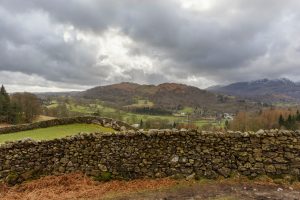
By Marc Pell on Unsplash
Walls. On the one hand, I like walls. I invariably position myself with my back against a wall when I’m in crowds or unfamiliar places. Nothing malignant can sneak up on me from behind. All my hypervigilance can go into watching my sides and front. I feel safe(er).
A corner is even better. Now two sides are covered.
A third wall, as in a blind alley or cul-de-sac, begins to feel more like a trap than a place of protection. What if I want to run away? I’m blocked on three sides.
A fourth wall? Now I’m in prison.
The thing about walls is they may keep danger out, but they keep everything else out, too. The good stuff. Love. Sunshine. Wandering children and butterflies. Inviting paths and trails. Possibility. Exploration. Views. Perspective. Wonderful surprises.
Walls, like everything else in life, can be taken too far. Built too wide and thick. Impenetrable. Too high to climb.
Shelter or dungeon?
What about metaphorical walls? What do we lean against because it’s familiar and we believe it keeps us safe from failure, from disappointment, from heartbreak?
Bitterness, certainly. We’ve risked. We’ve been vulnerable. It ended badly. We feel angry, disappointed, resentful. Never again, we tell ourselves. Things don’t work out for us. The world is against us. People suck. Life sucks. It’s our story, and we’re sticking to it. We’ve found a wall to lean on, a wall protecting us from trying again, risking again, feeling unpleasant feelings again.

By Hector J Rivas on Unsplash
But the wall is made of unpleasant feelings, isn’t it? Bitterness is the result of unresolved unpleasant feelings. So it’s really not protection. It’s reinforcement. It’s the thing closest to us pulling our focus from happier thoughts and feelings. It’s a constant negative reminder. It locks us in place with it, and it blocks any kind of relief.
As I’ve lived my life the last couple of weeks, interacting with and observing others, listening to the inside of my own head, I’ve made a list of walls we lean against:
Victimhood (closely allied with bitterness.)
Blame (oooh, this is a juicy one. “It’s not my fault. I have no responsibility, and therefore no power.”)
Denial (leaning on the wall, eyes squinched shut: “No, I won’t believe that! No, it’s not true! No, it’s not happening! It’s too scary! I’ll only accept what makes me feel good and in control!”)
Chronic health problems (“I would _________, but I can’t because I’m sick.” Sigh. Moan. Groan. Someone once said to me, “I don’t know what I’d do without my pain!” as though pain was her lover.)
Lack of money (“I can’t be happy. I can’t have/do what I want. I can’t experience abundance. I have no power.”)
Perfectionism (a personal favorite. “I would, but I’m afraid to because I won’t do it perfectly! So, no point in trying. I’m imperfect and therefore can contribute nothing of value, not even myself. Expect nothing from me. ‘Cause I’m so imperfect.”)
I don’t suggest we’re never victims, never have health problems, never experience financial scarcity. I don’t minimize the challenges of perfectionism or fear or the seduction of blame. However, constructing a wall out of such experiences and feelings and deciding to spend the rest of our lives leaning against it seems like a dubious choice. It may feel like it props us up and allows us to survive, but is survival the best we can hope for? Is leaning against a wall to stay on our feet the best we can do?
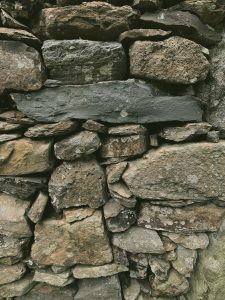
By Christina Botelho on Unsplash
Can a wall made of bitterness stand by itself? If we choose to step away from it, support ourselves, will the wall crumble? I wonder. What if the wall needs our support more than we need its support? It takes a lot of energy to maintain a wall.
What would happen if we just fell down instead of constructing walls to lean against? Better yet, what if we choose to lie down now and then, take a break, look at the sky, feel the world on our skin and beneath us? What if, when we feel hurt or despairing or sick or broken, we lay still and whispered, “Help!” and rested and waited for something or someone to come along and give us a hand back to our feet? If we’re not leaning (cowering) against walls, we’re in full view. Life can find us. Friends can find us. Help can find us. Hope, inspiration, and comfort can find us.
Walls can be useful. But they can also imprison us. They can be strong and organic and lovely, as in healthy boundaries. They can be poorly built and inadequate, too. Or just old and tired. Crumbling. Falling down. Gnawed away by Time’s tooth.
I ask myself, with all the world before me, why do I choose to lean against walls that separate me from it? Is that what I mean by safety?
Questions:
- What walls do you lean against?
- Do you think of a wall as protection or prison?
- How have your walls let you down?
Leave a comment below!
To read my fiction, serially published free every week, go here: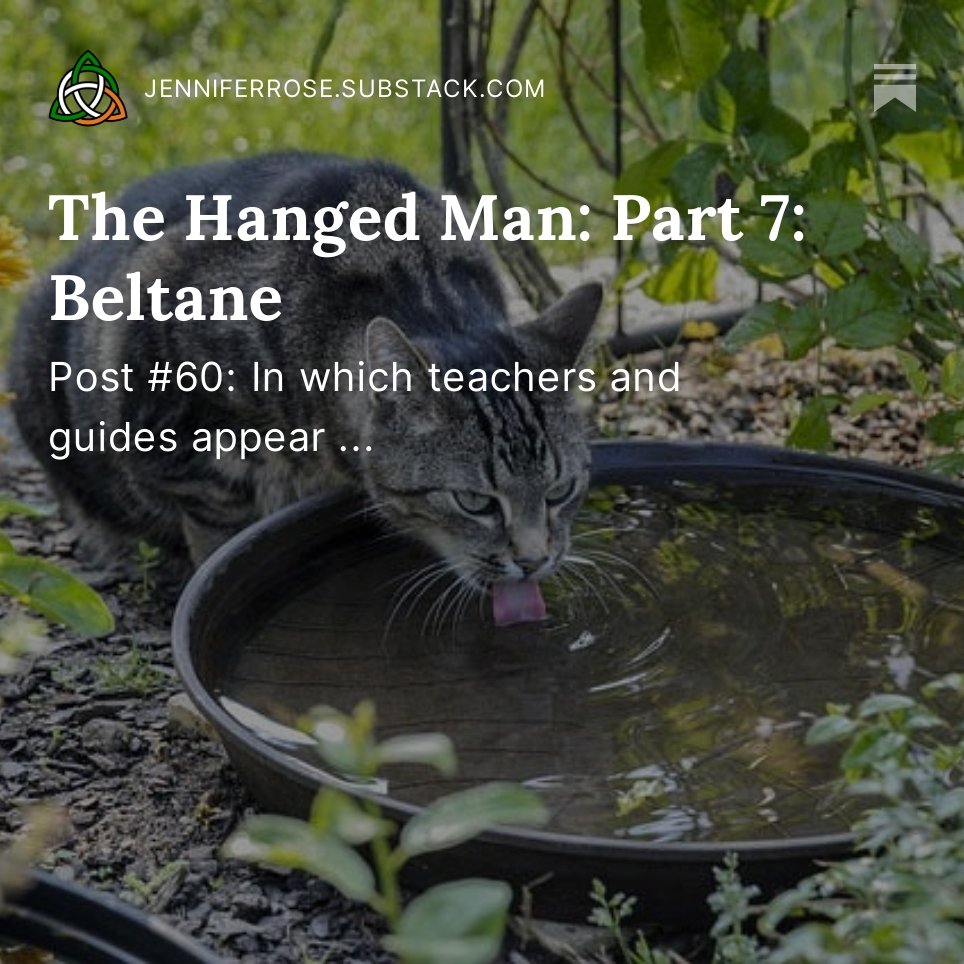
by Jenny Rose | Nov 12, 2022 | Choice, Power
I’ve dedicated the last decade of my life to reclaiming my personal power, each step on the path made visible on this blog in the hopes that others might also find their way into a healthier, happier, more effective life.
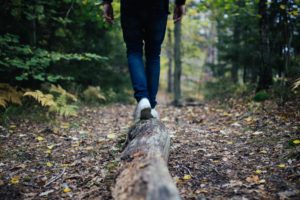
Photo by Jon Flobrant on Unsplash
It’s been an extraordinary journey, one I hope will never end as long as I’m breathing.
At the heart of personal power is our ability to choose.
I’ve always been aware of how uncomfortable I am choosing for anyone other than myself. For years I wasn’t able to choose effectively for myself; nothing in me wanted the power to choose for others. Hand-in-hand with this part of my experience is an automatic, knee-jerk stubbornness and opposition to those who try to choose for me or anyone else. It’s been a longstanding family joke: Don’t tell me what to do!
I’ve never been friendly toward this kind of authority.
As a parent I was unwilling to take on the role of a policewoman. I wanted my sons, as teenagers, to use their excellent brains and make their own choices, then deal with their own consequences. As I raised them, it slowly dawned on me the choices I made as a mom, though I always believed they were in the best interests of my sons, might have been wrong for them. I began to realize how much time we all spend in frustration over what those around us should and shouldn’t do, including our kids. I decided to stop discussing what others should choose. I still noticed the commentary in my head, but I got better at not letting it out of my mouth.
One day, I looked at my eldest son, who was going through a bad patch, and heard myself say, “I want the best for you, but I don’t know what that is.” I recognized that was the truth, and felt humbled. It broke my heart to see him struggling and unhappy. I would have done anything to have “helped.” But I didn’t trust my motives. Of course I knew what I thought he should do, but was I looking for him to feel better or for him to make me feel better? I couldn’t be sure. I just wanted things to be better. Wanted it desperately, but I also wanted him to figure out how to help himself.
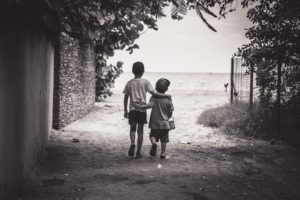
Photo by juan pablo rodriguez on Unsplash
I’m very aware of the word ‘should.’ I cut it out of my writing. I cut it out of my thoughts and speech. I’d even go so far as to say it’s a toxic word. I don’t apply it to myself and I don’t apply it to others. It never fails to appear when I’m arguing with what is or have otherwise stepped out of my own rightful power and am trying to control a situation that’s not mine to manage. It also shows up when I’m being mean to myself.
Now, suddenly, I find myself in a position of needing to make choices for a loved one who at this moment is not able to choose for themselves.
This is not like choice-making for my children. Kids are pretty resilient. I knew I would made mistakes as a parent, and I did. But I could always choose again. With small children, there’s a long future in which to reconsider, make new rules, learn in real time. I wasn’t uncomfortable with it. As they grew up, I gave them more and more power to choose for themselves and stepped back while they experienced the consequences of their choices.
Now they’re adults, and it’s harder. Now I really have nothing to say about their choices as men in the world. It’s not my business. Some of their choices are, to my mind, tragic and self-destructive, and I’m afraid for possible consequences. I’m afraid for my own pain and grief if some of those consequences occur. But I accept the only power I have is to love them and make sure they know it.
And making choices for an aging loved one is different again. The fear I’ll do it wrong is terrible. I’m working in a lifetime context where I never did do anything right, so I’m fighting that old dynamic every minute while I calmly go about gathering tools, resources and information. I know I’ll do my best and I’m confident in my own abilities and the strength of my love and intention, but choice is dynamic. It takes time to choose, observe outcomes, consider what could be better, and choose again.
I don’t know how much time I have. I don’t know how much time I want.
Working with a frail, injured, confused senior feels brittle. I may not have time to manage choice and outcome. Not only that, but when I choose for myself if I’m unhappy with the consequences I only have myself to blame; I bear all the outcomes, which is as it should be. But if we must choose for someone else, they must experience the consequences of our choice. And that’s a heavy burden for me. I feel enormous pressure to choose well, to not make anything worse, while at the same time I can’t see choices that will make anything much better.

Photo by roya ann miller on Unsplash
As I struggle with all this, mid-term elections have occurred and the final votes are being counted. The news is full of debate, discussion, and violence revolving around limiting choice and forcing “choice.” As always, I cannot get my head around people who think it’s okay to impose their ideology on others. I support freedom of personal choice (as long as it doesn’t harm others) in most circumstances. I wouldn’t impose my beliefs or choices on others. The idea is appalling. But I also don’t accept anyone has the right to restrict my access to vote or what I do with my reproductive ability. I refuse to comply with such imposition, even if it becomes law. You might as well arrest me right now.
A conversation recently took place at the pool facility where I work between a woman of child-bearing age and a male senior. She asked him why he thought it was okay for him to decide she couldn’t get an abortion when the choice was personal and had absolutely nothing to do with him. He said such a choice would hurt his feelings.
This drops my jaw. I don’t know whether to let rage catch my hair on fire or laugh. It hurts his feelings when people make choices incongruent with his belief system and ideology? Or it hurts his feelings when women are empowered? Or it hurts his feelings when he can’t control what others choose? Or he feels entitled to never have his feelings hurt?
Wow. Just wow.
Choice. It’s so easy to say to others, or to think, they should do this, or this, or the other. So easy. But I never wanted to run the world. I only wanted to be in charge of myself. Now a loved one needs me to be there for them, and I will be there every step of the way, giving it my best, just as I always have. But it’s not fun. I don’t want the power. I accept I’m the right one to have the power, but I never wanted it. How can I possibly know what’s best for another human being? How can any of us have the arrogance to think we know what’s best for everyone in every circumstance, let alone anyone in any circumstance? At times I can barely choose wisely for myself, let alone anyone else.
To read my fiction, serially published free every week, go here:
by Jenny Rose | Nov 6, 2022 | Boundaries, Connection & Community, Emotional Intelligence
I’m sitting at my desk this morning, the sun shining on the wet grass scattered with wrinkled leaves outside my window. I’ve just been running errands. My desk, unusually, is piled high with scraps of paper, notebooks, my calendar, receipts, to-do lists, and a new binder and paper I just bought to help me organize. My big grey tabby, Oz, is busily knocking everything off the desk and chewing on a new plastic package of AAA batteries because I won’t let him lie on the keyboard.
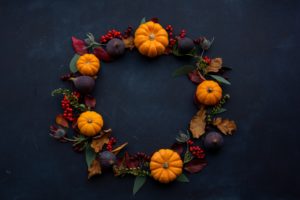
Photo by Joanna Kosinska on Unsplash
I was sick most of October. I’m finally on antibiotics; I can breathe, and consequently think, more clearly. A week ago an aged family member living halfway across the country with whom I have a lifelong troubled history became openly unable to manage their life and then fell and broke their hip in quick succession.
Sometimes life requires us to muster every bit of learning, wisdom, strength, courage, insight and experience we have in a catastrophic practical test, like a nightmarish pop quiz. This is one of those times. It helps to look at it that way, because I know I have (somewhere) everything I need to manage this situation with all my considerable compassion and clear-sightedness.
This last week I let go of everything. My living space needs to be cleaned. I desperately want to change my sheets after so many nights crying, coughing, and trying to breathe adequately enough to snatch some sleep. I’m longing to escape my phone and laptop, sit in the sun, read, relax, do some gentle gardening (still like late summer here in Maine). I haven’t even started on this post yet, a thing I usually do during the week.
I made it to work. I made it to the doctor for antibiotics. I stayed hydrated. Aside from reactive crisis intervention and coming to terms with what’s happening long-distance, that’s about all I can say for myself. But now, at last, I’m beginning to stir feebly into some kind of normal experience again.
It’s a relief.
I opened this document and started typing without any plan whatsoever. I don’t have to post today on this blog. It wouldn’t matter if I didn’t. I suppose I’ve grown used to the opportunity to organize my life into words every week.

For nearly a decade I’ve worked intensively on boundaries. Ten years ago I knew nothing about personal boundaries. My life was accordingly dysfunctional. It was hardly my life at all, in fact. It was everyone else’s life. I’ve written extensively about boundaries on the blog, and the concept of the difference between your experience and mine is woven heavily into my fiction. I’ve practiced building and maintaining healthy boundaries in the last years, though I’m still far from perfect in working with them.
But I’m getting better all the time.
When we are prevented from building appropriate psychological boundaries as children, we never create an internal world in which we can rest, center, and ground. We become an image in someone else’s mirror, a paper doll, a nonperson.
Nonpeople have no needs, no credibility, and no permission to express themselves as individuals. It’s worse than no permission, though. Nonpeople are severely punished for any independent feeling, need, or expression. Nonpeople have no private life. They’re not allowed to say no.
This kind of relationship, sadly, is often invisible to onlookers. From the outside, such connections look bonded and mutually adoring. The public view never sees the anguish involved in a relationship without boundaries.
Anguish on both sides. Those who seek to prevent others from having boundaries are deeply damaged, insecure people whose own boundaries were likely brutally violated and torn down. They are terrified of being alone, and a boundary makes them feel utterly outcast and rejected.

Photo by Nicole Mason on Unsplash
But for me, boundaries are sanity. They’re safety. They allow the power to choose and respect to flow both ways. They say, “My self is worthy. Your self is worthy. We can choose to love one another as well as ourselves.”
Reshaping a primary relationship with no boundaries into one with healthy ones is excruciating. It may not be possible. I haven’t decided it is impossible, but I wonder. One of the hardest things about it is how it looks to outsiders, who don’t understand why all the harsh edges and corners are suddenly showing in such a perfect, loving relationship, the kind we all want, the kind we should feel lucky to have.
Another feeling I’m present with just now is the nauseating swing between relief and guilt. All secrets, painful family secrets included, have an uncomfortable way of being revealed. Even if everyone involved conspires to keep the secret, eventually, often in a you-couldn’t-make-this-stuff-up kind of way, someone or something like a terrible series of events exposes it.
I’ve posted about such ideas as loyalty, responsibility, duty, gaslighting and projection. The bars of prisons built by family systems are forged out of concepts and strategies like these. But when a secret escapes the bars melt away and we’re suddenly free. We’re not alone in solitary anymore.
Some stranger says to us, “Oh, yes. I’m familiar with that dynamic. I’ve observed that behavior. I understand,” and we realize we are not crazy. We are not mean and ugly. We are not hateful.
We are not alone.
The relief of validation is indescribable. So is the guilt accompanying the relief. When we guard secrets, literally with our lives, for the sake of protecting the dignity of a loved one and the secrets are revealed through no fault of our own, we also feel exposed. The mere fact that we were the designated secret keeper means we failed.
Our love and the cost of bearing the secret’s burden for so long doesn’t matter. The least we can do, the least we can do, is remove all the boundaries we’ve erected so carefully and painstakingly and once again give up our lives, our freedom, our selves. Our loved one’s anguish should become our anguish, their pain our pain, their limitations our limitations. If necessary, their death should be our death. Because we betrayed, we let them down, we failed.
The secret got out.
I can’t see very far ahead. It’s not useful to gaze at the road behind. I’ve already walked it and everything is different now, the people involved and the situation. Right now I know where I am. I can see the next steps. This is a new path, one I’ve never taken before. It’s a new script, a new experience. I’m working on releasing my assumptions. I don’t know what will happen next. I can predict, but predictions make me tired. What I have is right now, today. I know what I will do today, both in my personal life and to manage my loved one’s situation.
This time I will find a way to inhabit my boundaries and support my loved one without sacrificing one for the other. I will make phone calls, send emails, get myself organized to do whatever I can long distance and prepare to travel in case of need. I will grieve.
I will also write, get outside, do some laundry, maybe take a nap, and work on recovering my health, because mine is the only life I can live.
To read my fiction, serially published free every week, go here:




















